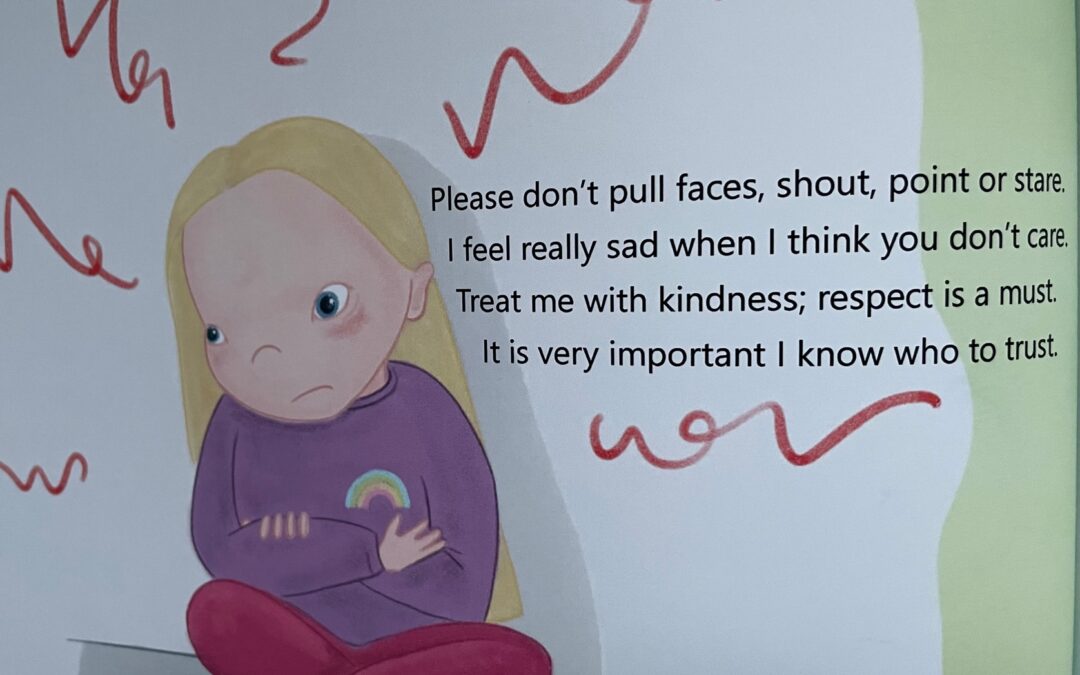Today is the start of Anti-bullying Week (14th to 18th November 2022).
Bullying has got out of hand. It’s spreading like a virus that society needs to wipe out before it destroys society.
I was bullied at primary school and my older brother Martin was bullied more times than I care to remember throughout his life on account of his ultra-rare genetic condition WAGR syndrome. I would have liked my older brother to protect me, but it was me who had to protect him. He was not allowed to attend the same schools as me, so we often had to fight our own battles.
It’s rather fitting that WAGR Awareness Day fell at the start of this week on 13th November, as well as World Kindness Day. It was my brother’s condition and struggles that originally inspired me to write ‘A little bit EXTRAORDINARY’.
No child should be bullied. No parent wants to feel the pain of their child being bullied.
The stereotypical school bully is the pupil that hits other students or calls them names. People who are quiet or have disabilities are often targeted as they are regarded by opportunists as weaker than them and therefore a soft target. However, bullying also takes the form of ostracising people by ignoring them and making a point of leaving them out of group chats or activities or silently using body language to communicate their disdain for their victim. This is just as hurtful.
This is often enacted by someone who may have narcissistic tendencies. They may round up a group of followers and accomplices who act as their ‘flying monkeys’ to participate in or back up their bullying behaviour.
Bullying can occur in the workplace and just about anywhere in which one person or a group of people try to exert power over others in an aggressive or intimidating manner.
Due to social media and technology, bullies now torment their victims in the privacy of their own space. Boundaries simply don’t exist for these people who have a huge sense of entitlement.
Underneath, those bullies often feel powerless, insecure, neglected and threatened by or jealous of the abilities or possessions of others who they think make them feel less than or who they feel they need to compete against. They need help. They need to be taught right from wrong.
Our society has created a ridiculous ‘win or you’re nothing’ attitude. This attitude can be passed down from competitive parents to their children who then feel under constant pressure to live up to their expectations by any means.
It can be passed down from coaches to sportspeople because all they care about is the kudos of winning or the prize money at the cost of what sportsmanship means or what it means to be a team player. Money doesn’t buy manners. I have seen football coaches and players who only care about having the next ‘golden balls’ on their team with no thought about crushing the feelings of children who joined the team simply because they enjoy playing football and the social aspect of it, but are penalised and relegated to the sidelines for most of the match just because they don’t have an ultra-competitive personality type. Children are intuitive. They are well aware of how they are being treated and why.
I have also witnessed a football coach who picked out a child for commendation in front of both sides because he kept passing the ball to his teammates rather than constantly trying to score goals and who stopped to ask a player on the opposition if he was ok when he got injured. The coach said: “This is what a team player is”. I am proud to say that was my eldest son when he was six or seven years old on a football team in New Zealand.
Some people stop at nothing for individual glory. I have witnessed this behaviour in adults and children alike – stooping to cheating, lying about scores, faking injuries or belittling their opponents to purposely undermine their self-confidence all in a bid to be the winner. That behaviour does not make them a winner. It makes a loser, regardless of whether in the public eye they won the title or prize on that occasion. Owning a trophy or medal doesn’t necessarily make someone a winner. If it was gained without integrity, it is really a memento of shame.
Ever since my children were tiny and we observed other children being nasty to others or snatching something or pushing in front of them in a queue for the slide at the park, etc., and they’d be upset and remark on the unfairness of the behaviour, I would use it as a teaching tool and say: “That is how you shouldn’t behave”, so they had a living, visual example of what I had already taught them not to do. This is a great technique that any parent can use until possibly one day they won’t be able to use it because human beings will have evolved to always act from a place of love and kindness.
Parents, caregivers, teachers and all role models have a responsibility to teach children essential values and morals at a young age, such as kindness, respect, tolerance, inclusivity and integrity. The bullies we witness today are often the ones who haven’t been taught the importance of these values properly.
That’s exactly why my book ‘A little bit EXTRAORDINARY’ is the ideal teaching tool for every home and school to help young people grow in a moralistic way to build a more harmonious society.

